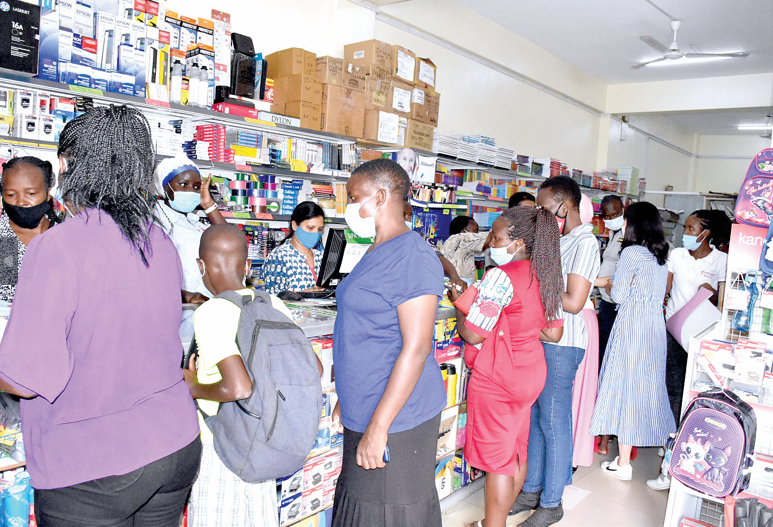Why it’s tough being a parent with school-going children
By Irene.Githinji, December 5, 2022Since 2020 when schools worldwide were ordered closed due to the Covid-19 pandemic, Kenyan parents have continued to shoulder the big burden of educating their children in an increasingly difficult environment.
From being forced to stay with their children for close to a year, double payment of school fees in 2021 and 2022, several interruptions to the school calendar to the apparent confusion around the Competency-Based Curriculum, the last two years have been tough for Kenyan parents with children in schools.
In some schools, head teachers have imposed on parents some extra and illegal levies rendering school fees beyond the reach of many parents.
It was only last week when the Presidential Working Party on Education Reform left parents and pupils in shock when it recommended that the just concluded 2022 Kenya Primary School Education Assessment (KPSEA) would not be used to determine Grade Six pupils’ progression to Grade Seven.
This was immediately after the pupils had for three consecutive days braved all the harsh conditions in their schools and homes to sit the national assessment.
During Covid lockdown, some schools, especially private, continued learning virtually, others had no option but to wait until the Government would announce reopening of schools.
For nine months, parents stayed at home with their children until January last year, when the pandemic eased and learners were called back to schools. The government had to re-organise the school calendar to catch up with the lost time. For the first time ever, this and last year has seen an academic calendar with four terms and very short breaks in between.
“These two last years have been extremely difficult. We had to pay schools fees almost every two and a half months. Not to forget the many requirements and assignments we have had to contend with as CBC parents,” says a Grade Five parent, Anita Njoki.
With Covid, thousands of parents lost their jobs and businesses, making it a major challenge for them to keep up with the hard economic times.
“We are hopeful that things will now change for the better, as we look forward to seeing our businesses pick up,” she adds.
Although the school calendar is scheduled to go back to normal in January, there is a catch for parents. The government has declared that the subsidy it had put on school fees has since been lifted and parents would have to dig deeper into their pockets start January as schools slap the normal fees. Last month, the Ministry of Education issued a circular indicating that parents will continue to pay approved fees for various category of schools, given that the academic calendar will revert to the standard 39 weeks from 30 that had been set in the revised system.
“The Government will continue to offer free day schooling, which amounts to Sh22,244 for each learner. For National and Extra county boarding schools located, the Government will provide a subsidy for each learner equal to that of each in day schools,” the ministry said last month.
Boarding fees
Parents will then pay boarding fees in order to meet costs of learners as well as for maintenance and improvement. For this category of schools, parents will now pay Sh53,554, which brings the total to Sh75,798 annually for each when the government tops up with subsidy of Sh22,244.
For other categories including County and Sub-County Schools, parents will be required to pay Sh40,535 while the government tops up with Sh22,244 for each learner to give an annual fee of Sh62,779. For special needs schools, the government will provide an enhanced capitation of Sh57,974 per learner, which includes a subsidy of Sh23,220 per learner for boarding equipment and stores and a top up grant of Sh12,510 per learner to cater for assistive devices and any additional personnel needed.
Parents with learners in special needs schools will then be required to top up Sh12,790.
Aside from school fees, the Junior Secondary School (JSS) question still lingers despite the government declaration that it will be domiciled in primary schools.
The government says JSS will be domiciled in primary schools due to the challenges of inadequate infrastructure, shortage of teachers and tender age of the pupils. This came just a day after Grade Six learners had sat KPSEA.
As schools re-open in January, parents are still expected to buy several requirements. For instance, parents, mostly in private schools have been given 10 or more books that they are to buy.
“We have a lot of books to buy and much as the CBC system is good, there are so many things we are required to buy for our children,” another parent who did not wish to be named said.
For most parents, the major headache is how to keep their children occupied for this period.
The high cost of living and harsh economic realities are forcing many parents to either dig deeper into their pockets or sink further in debt to finance holiday spending habits.
The National Parents Association (NPA) Chairman Silas Obuhatsa, however, calls for an even closer parenting role during this period.
Zizi Afrique Foundation Director of Programmes Virginia Ngindiru also called on the need for parents to spend time to nurture on life skills and use the time to hold conversations to inculcate values among their children.
